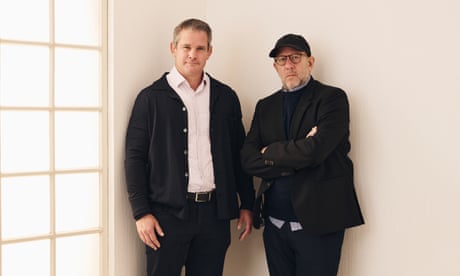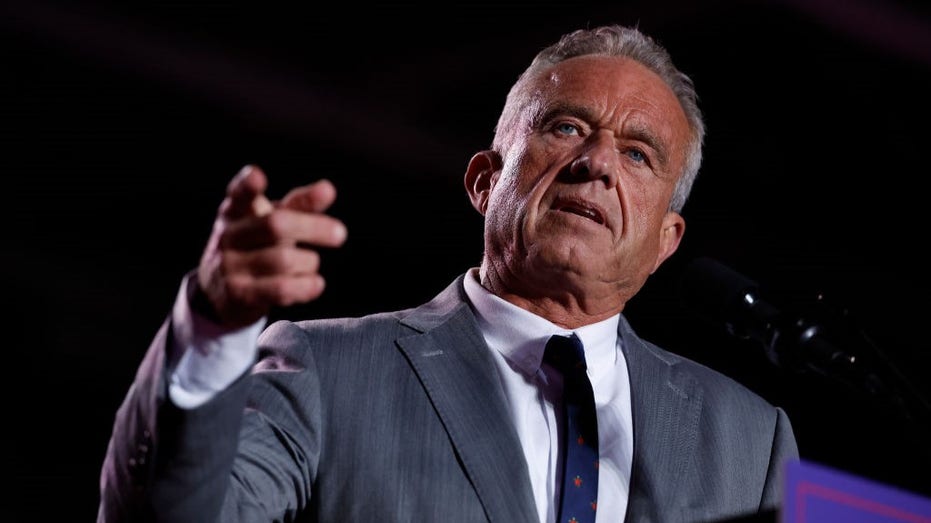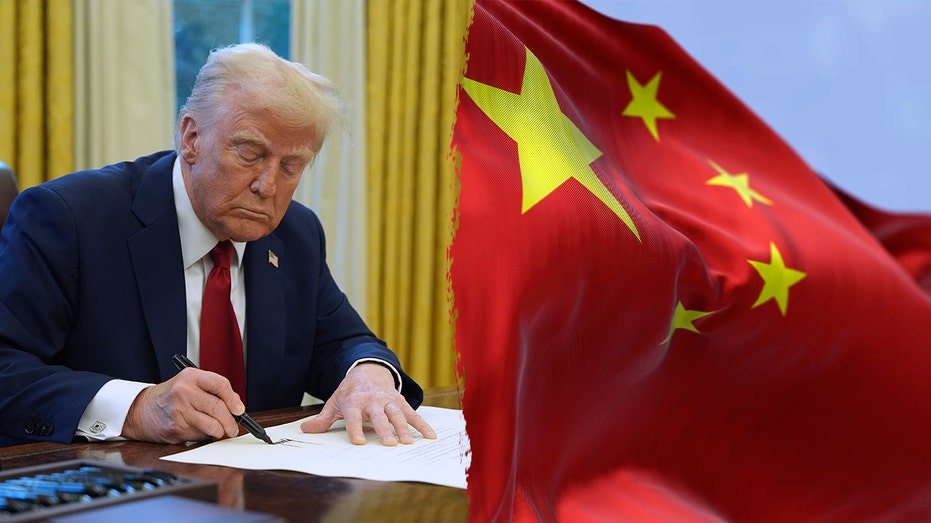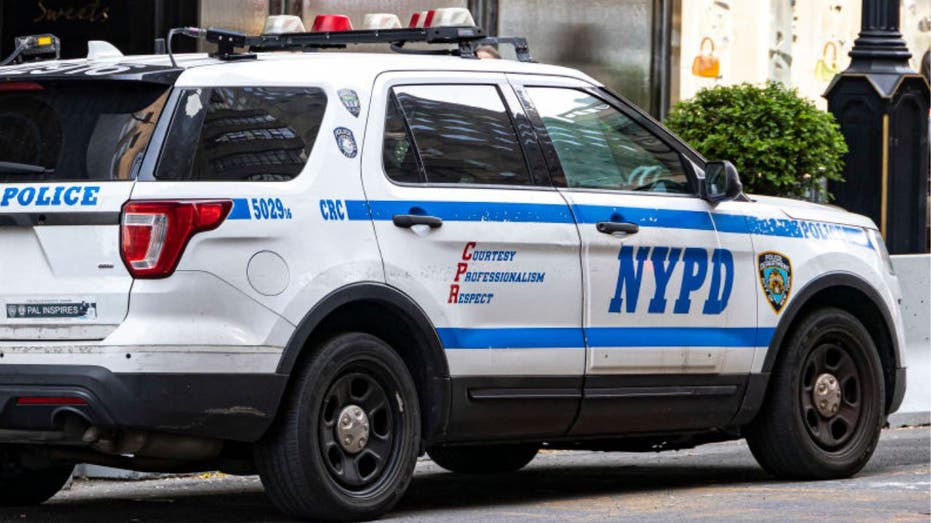- by foxnews
- 08 Apr 2025
‘Do you have contempt for my views?’ How a leftwing film-maker and a Republican came together
‘Do you have contempt for my views?’ How a leftwing film-maker and a Republican came together
- by theguardian
- 13 Sep 2024
- in politics

"Donald Trump is a weak man pretending to be strong. He is a small man pretending to be big. He's a faithless man pretending to be righteous. He's a perpetrator who can't stop playing the victim. He puts on quite a show but there is no real strength there."
It was no surprise to hear such rhetoric cheered to the rafters at the recent Democratic national convention in Chicago. But the words were not spoken by a Democrat. They came from the mouth of a stranger in a strange land: the former Republican congressman Adam Kinzinger.
It was the latest example of how the Trump era has created strange bedfellows. The former first lady Michelle Obama hugging ex-president George W Bush. Liberal audiences in Washington DC standing to applaud the arch conservative Liz Cheney. Even Trump's vice-president, Mike Pence, has earned grudging praise for defying his boss when it mattered most.
But there are few odder couples than Kinzinger and Steve Pink, a leftwing Hollywood film director who aligns himself with the Bernie Sanders wing of the Democratic party. They came together to make The Last Republican, a debut documentary by Pink that follows Kinzinger's year of living dangerously as a Never Trumper on Capitol Hill. It premiered at the Toronto film festival last week.
The film opens with Kinzinger expressing his and his wife's doubts about the project and telling Pink: "I recognise that you have contempt for what I believe, like, in terms of my political viewpoints. I think in any other situation you probably would be protesting my office. You're just so far left."
Pink objects that is kind of mean. Kinzinger asks: "Do you have contempt for my views, Steve?"
We do not hear Pink's reply. But in a Zoom interview from Los Angeles, the 58-year-old elaborates: "When it comes to strictly politics, I wouldn't say I hold them in contempt although, when I'm feeling belligerent, I do hold them in contempt because I have very deeply opposing views.
"It was kind of extraordinary he took a risk with me as a film-maker because he says in the film I could make him look stupid and I could just do a hit piece. I was surprised by that and I was like, OK, I realise that, but who we are to each other despite our opposing political views is maybe more important than our political views themselves."
So why did Kinzinger agree to the project? The answer is as simple as it is unexpected. His favourite film, the 2010 sci-fi comedy Hot Tub Time Machine, was directed by Pink. They also both hail from Illinois.
Pink adds: "I'm like, if you think I have contempt for your views, why did you choose me as a film-maker? He's like, Hot Tub Time Machine is what sold me, and I was like, well, that's good logic. I don't know if I would have done that if I were you but we had common ground. Having a shared sense of humour is a great foundation to have more difficult conversations down the road, for sure."
Kinzinger grew up with cultural touchstones such as Ronald Reagan, Rocky and Red Dawn. The former air force pilot, who served in Iraq and Afghanistan, was first elected to Congress in 2010. At first he was a loyal Republican; later Kevin McCarthy, destined to be speaker of the House of Representatives, offered to officiate Kinzinger's wedding.
But Kinzinger broke from McCarthy, and the party, after the 6 January 2021 insurrection at the US Capitol and was among 10 House Republicans who voted to impeach Trump. He and Cheney were then the only two Republicans who joined the House committee to investigate the January 6 attack.
Both paid a price for refusing to submit to the cult of Trump and Maga (Make America great again). Kinzinger lost friends, was turned into a pariah by his own party and targeted by extremists and trolls with death threats. He did not seek re-election and formed a political organisation, Country First, to back anti-Trump candidates.
Pink, whose documentary follows Kinzinger during his final year in office, comments: "That was my initial reason for wanting to make the film: here's a guy whose political views I oppose who stood up against his party and Donald Trump in the wake of January 6 to take a principled stand in defence of our democracy in the defence of our constitution.
"I thought that was a very brave thing to do. He sacrificed a lot. He had a pregnant wife at the time. He himself will tell you that he was shocked that he lost all of his friends and his family and the fact that he got thrown out of his own political party."
He adds: "He felt like part of your job description as a legislator, as a congressperson in our country is to uphold and defend the constitution. That's the oath you take and so when he saw everyone around him being absolutely comfortable with violating that oath, it was absolutely shocking to him and kind of devastating and he was very isolated very quickly."
Perhaps the truly shocking thing is not that Kinzinger and a handful of others have dared to make a stand, but that so many members of the party of Abraham Lincoln, Dwight Eisenhower and Reagan have sold their political souls and capitulated? When the chronicles of the Trump era are written there will be a special place in infamy for enablers such as Pence, McCarthy, Kellyanne Conway, Rudy Giuliani, Elise Stefanik, Sean Spicer and many others.
Pink observes: "It is more shocking and it's more infuriating and Adam talks about that as well. He's actually more furious with the people who remain silent and have just gone along with this thing. He finds that deeply shocking and deeply troubling. There's no question about it."
The film-maker himself was taken aback by the high stakes when Kinzinger sat with his congressional staff mapping out his final 14 months in office. He could have pursued all kinds of legislation but said instead his priority was the preservation of democracy - and that the history books would look kindly on that.
"I found that to be a very shocking thing to say. Wait, so your legislative agenda is democracy preservation? I didn't think that was on the table. I thought it was about safer streets, less government regulation, something legislative? But his focus was going to be democracy preservation. That was a terrifying moment for me that it was even a question in a staff meeting."
Pink gained access to the January 6 committee hearings on Capitol Hill and chronicles how they faced much scepticism at first. The headline of a David Brooks column in the New York Times declared: "The Jan 6 Committee Has Already Blown It," before the first gavel had been wielded. In fact the sessions made riveting theatre for those in the room and compelling television for those at home.
Kinzinger offers an inside track on how it all came together, what he thought of his colleagues on the panel and how a text message from his wife informed his public remarks, bringing him close to tears. Pink says: "It was quite a moment for Adam and all the committee members to have worked as hard as they did and to be able to successfully get the message out, which clearly helped speed up the justice department's investigation into the matter."
But there was backlash. The Last Republican plays some of the chilling and ugly voicemails that Kinzinger received because of the stand he made. One says: "You little cocksucker. Are you Liz Cheney's fag-hag? You two cock-sucking little bitches. We're gonna get ya. Coming to your house, son. Ha ha ha ha!" Others describe Kinzinger as "a piece of shit" and a "traitor".
A company provides 24-hour security at Kinzinger's family home. He explains to Pink with a rueful laugh: "People wanna kill me so, you know, it sucks, right?
It is a stark reminder of the incentive structure that Trump has built inside the Republican party: kiss the ring and you will be rewarded with endorsements and Maga stardom; cross him and you will be ostracised, challenged in a party primary and subjected to vile abuse and death threats.
Pink says: "At first when I talked to him about it, it hadn't left the confines of the congressional office. When the death threats were coming in, weirdly they became commonplace. They had an increased Capitol police and even FBI interest in what was happening. Obviously, there's a lot of protection around you in that context.
"Whereas when the death threats started expanding to his family, to his wife, at his home, it was very stressful and it took a toll on him. There was almost a level of disbelief that there was so much hatred and that people took the time to actually express their hatred. It was shocking to him and it was very hard on Sofia and Adam for sure."
During the film Kinzinger also talks movingly about an incident in his past that seems unrelated but actually explains much about his political decision-making. One night in Milwaukee, Wisconsin, in 2006 he encountered a young woman holding her throat, which was bleeding profusely, and her boyfriend intent on killing her with a knife.
Kinzinger recalls: "If somebody would have whispered 'run' to me I would have run. But there are two immediate thoughts that went through my head. The first one was like, if I act, I'm gonna die. The second one was, if I watch this lady die and I did nothing, I can't live with myself the rest of my life."
The assailant was bigger and Kinzinger can still remember feeling the knife hand trying to stab him. But he wrestled the man to the ground and held him there until police arrived. The 46-year-old says that moment in Milwaukee utterly changed his life.
Pink comments: "Here again was an example where he stepped into a situation without thinking of the consequences, purely on the basis that he thought it was the right thing to do. I was interested in the kind of person who actually does that. To me the film became less a story about a guy who sacrifices for his country and more about what he wouldn't sacrifice.
"Despite the apparent danger, he didn't want to give up his willingness to serve and lose that desire to do that and fall prey to cynicism. It's one thing to say that you're courageous to sacrifice. It's a different kind of courage to say what I don't want to lose are these things that are important to me. Despite everything against me, I don't want to lose these things that I believe in because those are the things that keep me going."
The anti-Trump coalition has been described as the biggest political force in America today. It has scrambled old alliances and thrown together progressives, independents and groups such as the Lincoln Project, conceived largely by old-school Bush and McCain Republicans - often middle-aged white men - who now find themselves rooting for a liberal woman of colour from California to win the presidency.
Pink is still ready for an argument about policy but acknowledges that, for now, there is a higher priority. "I remain deeply conflicted in terms of my political views but we are in a crisis moment in our country and there's no way to avoid the fact that the more important value right now is the thing that we agree on: that everyone should have a vote and that vote should count and we need to ensure, in order to preserve our democracy, a peaceful transfer of power. Those two things are fundamental."
He says of Republicans: "It's not whether they're heroes. I even say to him in the movie a courageous Republican is still a Republican. You don't have to be a Republican to believe in the peaceful transfer of power and believe that everyone's vote should count.
"It is shocking that one of our two major political parties don't hold those as essential values. It's terrifying and we're going to need to do the work to lessen the influence and power of people who don't believe in those two fundamental values."
Kinzinger received a warm reception on the final night of the Democratic convention, not long before Kamala Harris took the stage to accept the party nomination. Her speech, and a subsequent CNN interview, indicate that she is tilting towards the centre on climate, healthcare and immigration. But when the alternative is Trump, even an old lefty like Pink believes the choice is clear.
"Because I'm a political junkie, you see how politicians move to different spaces as part of a campaign and then their political philosophy is revealed when they are in power. I don't take that much stock in if someone says to me, oh, Kamala's position on X or Y is this, it should be that.
"Do we believe in her political philosophy broadly speaking? I do. She would make a great leader of our country. The kind of president she will be remains to be seen and I look forward to seeing the kind of president she will be. I'm not troubled by any particular political position she holds in this time when she's campaigning for president."
Harris would be the first woman and first woman of colour to serve as president, dealing perhaps the final symbolic blow to Maga: the result would show that it was Trump, not Barack Obama, who was the historic aberration.
Pink describes himself as "bullish" about her chances. "The hypocrisy and narcissism and bullying and madness of Donald Trump have been exposed over and over and over and over and over again and yet he's somehow managed to survive, being a formidable person in American politics. One of these days he's not going to be and I hope that moment is upon us."
- by foxnews
- descember 09, 2016
Ancient settlement reveals remains of 1,800-year-old dog, baffling experts: 'Preserved quite well'
Archaeologists have recently unearthed the remarkably well-preserved remains of a dog from ancient Rome, shedding light on the widespread practice of ritual sacrifice in antiquity.
read more





